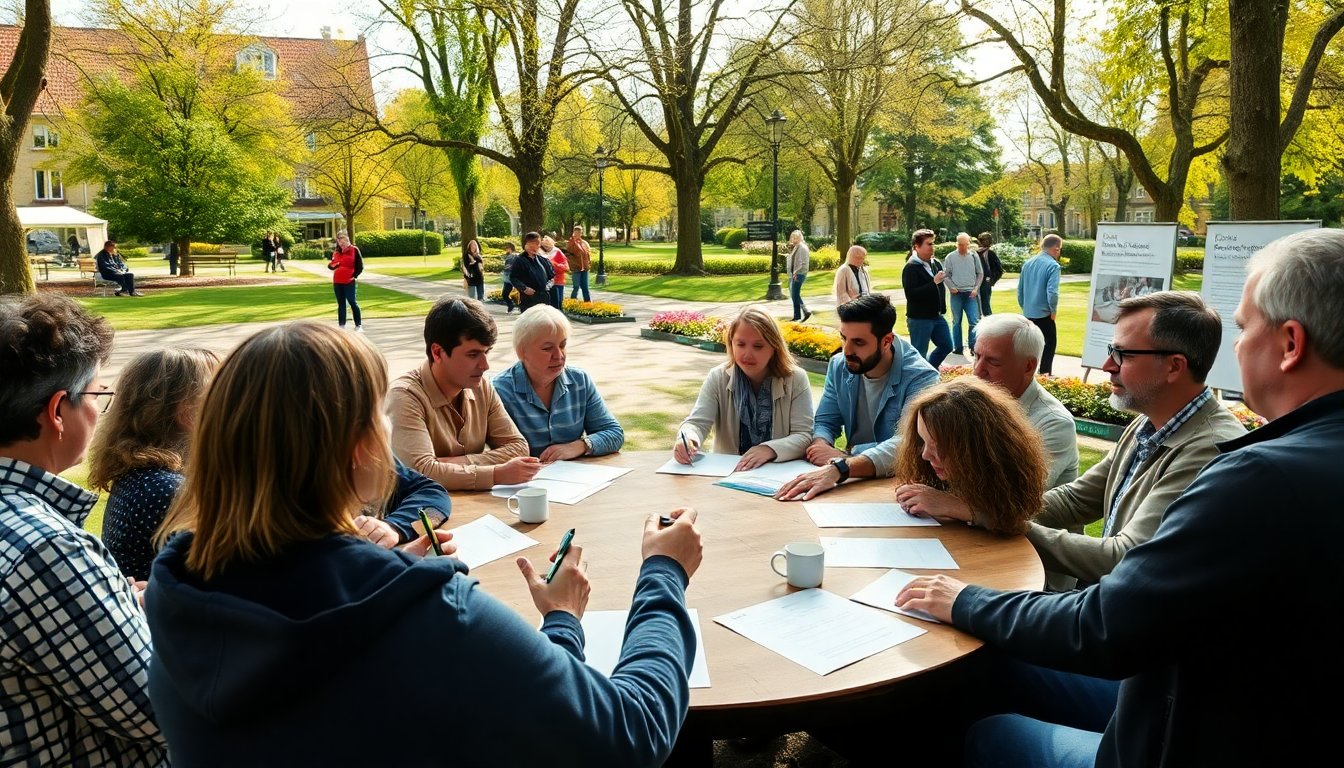Table of Contents
In a significant shift towards participatory governance, a small region in Belgium is adopting an innovative approach that empowers citizens to influence local policy-making. This initiative emphasizes the importance of citizen involvement while aiming to restore public trust in government. Amid growing disenchantment with traditional political structures, this grassroots movement signals a hopeful turn towards a more inclusive democracy.
The process begins with recruiting everyday citizens eager to contribute to their communities. Unlike conventional political methods dominated by elected officials, this initiative engages a diverse range of individuals, representing various demographics and backgrounds. This approach fosters a sense of ownership among participants, encouraging active engagement in discussions and decision-making.
Empowering citizens through training
Participants receive comprehensive training to equip them with the skills needed for effective policy formation. This training covers essential topics such as understanding the legislative process, using data to inform decisions, and the fundamentals of public speaking. The goal is to create informed citizens who can contribute meaningfully to discussions, ensuring all voices are heard.
Building skills for effective participation
Through workshops and collaborative sessions, citizens learn to analyze data, propose solutions, and present their ideas confidently. One participant noted, “This training has transformed my perspective on governance. I now feel capable of contributing ideas that can genuinely make a difference in my community.” Such sentiments reflect a broader trend, where individuals previously skeptical of their influence in government are finding renewed confidence.
A new sense of community trust
As citizens engage more deeply, the initiative has revitalized trust between the government and its constituents. Participants report that involvement in the policymaking process has reshaped their perceptions of government, which they now view as a collaborative partner in community development. This shift is crucial in an era marked by political polarization and public distrust.
Moreover, the initiative has encouraged open dialogue between citizens and officials, fostering a collaborative environment where ideas can flourish. By bridging gaps between the government and the populace, this initiative serves as a model for revitalizing democratic engagement at local levels.
Impact on community policies
As a direct result of this engagement, several policies have been proposed and implemented based on citizen recommendations. These policies reflect the community’s actual needs and desires, showcasing the power of citizen-driven governance. One notable example includes a new environmental initiative aimed at promoting sustainability, conceived entirely by citizen participants.
In addition to tangible policy outcomes, the initiative has cultivated a sense of responsibility among participants. Many now advocate for continued community engagement beyond the program, emphasizing the importance of ongoing dialogue and involvement in local governance.
Looking towards the future
The success of this initiative in Belgium serves as a beacon of hope for other regions grappling with similar challenges in democratic engagement. By harnessing the potential of ordinary citizens, government institutions can rekindle faith in their processes and foster a more inclusive political landscape. As this grassroots model gains traction, it raises critical questions about the future of democracy: How can more regions adopt similar practices to enhance citizen involvement?
This movement underscores a vital message: when citizens are empowered to take an active role in governance, they not only shape policies but also cultivate a renewed sense of community and trust in their institutions. This initiative in Belgium reflects the transformative power of participatory democracy and represents a promising step towards a more engaged and responsive government.


